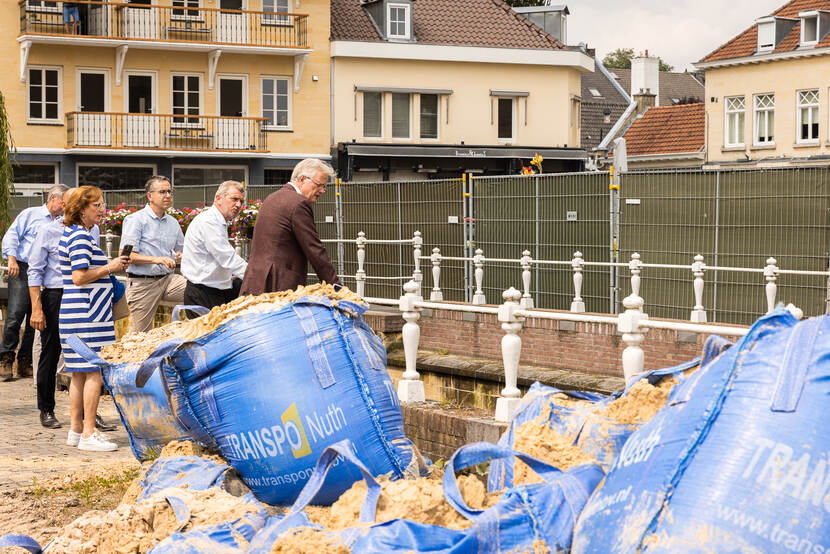Netherlands needs to prepare better for extreme rainfall
Raise awareness that severe floods are also possible in the Netherlands. Provide people with action perspectives that are specific to where they live. Look at a larger area for introducing measures. These are three of the recommendations of the Pluvial and River Flooding Policy Platform, which was established in response to the floods in Limburg in July 2021.
Minister Harbers of Infrastructure and Water Management is adopting all the recommendations and has sent the final advisory report ‘Prevention is not possible; preparation is’ to the Dutch House of Representatives.
"The floods in Limburg have demonstrated the limits to our capacity to engineer the water system."
Minister Harbers: “Flooded streets, houses and shops: the pictures from Limburg are all still vivid in our minds. Studies have consistently shown that extreme weather will become more common; and the policy platform has emphasised this. I think the Netherlands should prepare as much as possible in order to minimise the risks and damage. I am therefore adopting the recommendations of the policy platform, and we will start implementing them with the relevant government authorities.”
Delta Commissioner Peter Glas: “The floods in Limburg have demonstrated the limits to our capacity to engineer the water system. We cannot prevent the disruption associated with extreme weather of this kind. This requires not only a heightened awareness of water but also adaptations to spatial planning in order to make our communities more climate-resilient. During that process, we have to look beyond the boundaries between countries, regions, and the main and regional water system.”

The policy platform has looked at how residents, businesses and government authorities can be made more aware that extreme weather, with excess water or floods as a result, is also possible in the Netherlands. The platform advises tailoring communications to specific target groups and situations such as people who live in the vicinity of brooks, or arable farmers who grow crops in the floodplains.
Water authorities and municipal authorities have an important role to play in the implementation of this recommendation. The Ministry provides support, for example through the Our Water platform. This platform is producing a toolbox with tools for individual target groups: what challenges does their area face, how can they take precautions and what can they do when there is flooding?
The Ministry will be looking at whether a water label can be introduced for house sales.
In addition, the Ministry will be looking at whether a water label can be introduced for house sales. This will be similar to the energy label and it will provide more information about the risk of a home or building being affected by flooding or problems with excess water.
Finally, the national governments and water authorities are working to provide better information for the general public and businesses so that they will have better predictions of how high the water will be, what the implications are for them and what they can do in the case of an emergency. Rijkswaterstaat is working on improving the dissemination of information to safety regions, water authorities, and sectors such as shipping and drinking water companies. This will allow safety regions to provide the general public with better information during a crisis.
Looking beyond existing boundaries
In addition, the policy platform concludes that extreme rainfall is possible in such a large area that it is necessary to look beyond existing boundaries. This applies to national borders. However Dutch provinces and water authorities also need to look beyond their own boundaries to assess flood risks.
These authorities will now be teaming up to identify vulnerable locations in specific areas. The national government, provinces, water authorities and municipalities (the Delta Programme partners) will then look to see which additional measures are required.